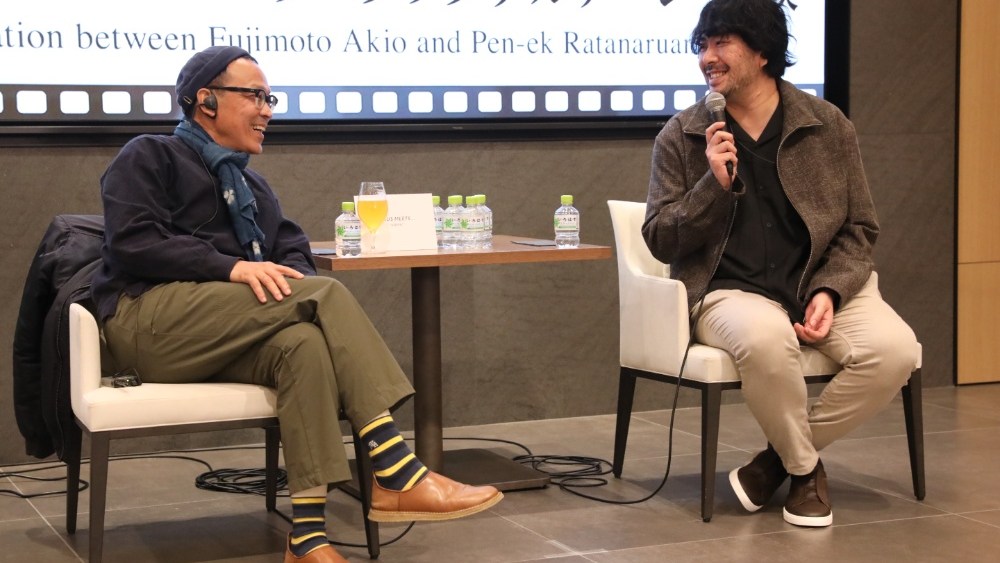Acclaimed Thai director Penek Rattananaruan returns to the Tokyo International Film Festival with his latest film, Morte Cucina. But it was his famous collaborations with Japanese actors that stole the show during his masterclass with Lost Land director Akio Fujimoto.
The contrapuntal focus of their work, Ratananaruan’s frequent use of Japanese talent, and Fujimoto’s focus on Southeast Asian themes were central themes of discussion.
Director Ratananaruan recalled co-starring with legendary Japanese director Takashi Miike in his 2003 film “Last Life in the Universe,” where director Takashi Miike made a cameo appearance as a yakuza boss. Miike took the reins of his character’s appearance and supporting cast.
“He said he knew who he would cast as the henchmen. One would be the scriptwriter and the other would be the actors he always uses. He said he was going to design all the costumes for all three of them, because he knew how the Yakuza actually dressed,” Peniek said.
According to Ratanaruan, Miike even advocated a particular hairstyle, the panchipama, a close-cropped perm that was popular among elements of the underworld in the 1970s.
“So, he did everything for us. He did the casting for us. He designed the costumes and when we had to shoot in Osaka for a week, he got all the (underworld) permissions for us because everyone really respected him,” Ratanaruan said.
Ratanaruang shared another anecdote from Miike about the finished product.
“He’s a really good director, but he’s a really bad actor. He really stands out. He doesn’t fit in,” said the Thai director. “He himself said that when he saw ‘Last Life in the Universe,’ he said, ‘Pen Ek, you’ve made such a beautiful movie…I’m the only one who’s bad in this.'”
An important point that overlapped in Fujimoto and Ratanaruan’s conversation was how their casting processes tend to influence their scripts.
“The scariest thing about filmmaking is that people lose interest or fall asleep 20 minutes into the movie. You have to fight against losing the audience and losing interest,” Ratanaruan said.
“So what’s on screen has to be really interesting. And I think actors are on screen most of the time. We cast people that we think the audience can watch for two hours without losing interest. That’s who we choose,” he added.
“It’s someone who probably doesn’t speak well and can’t act at all, but just their presence is so great that you have to keep watching. And they might not match exactly what you wrote in the script. So you change the script to suit them,” he said.
Similarly, Japanese director Fujimoto detailed the challenging and delicate process of casting non-professional Rohingya actors for his film Lost Land, which focuses on the refugee experience in Myanmar.
“The original script was about two 14-year-old brothers,” Fujimoto said. “But when I went scouting a Rohingya school and saw this little boy who was 4 at the time, I felt like he was very talented and could lead the movie. Then I went to his house and he had an older sister, and I thought, ‘Wow, that younger sister is nice too.’ So let’s rewrite the script.”
Given the real dangers faced by refugees, he declined to give details about where the performers were found or filmed, saying, “We can’t tell people where they live, so we can’t actually say where we found them.”
Fujimoto’s lead actors, brother and sister, are Rohingya and face immense challenges to their freedom.
In explaining why they cannot travel to attend film festivals, the filmmaker emphasized the reality that they are stateless, saying, “They are stateless. They don’t have a passport, so they basically can’t leave where they live.”

